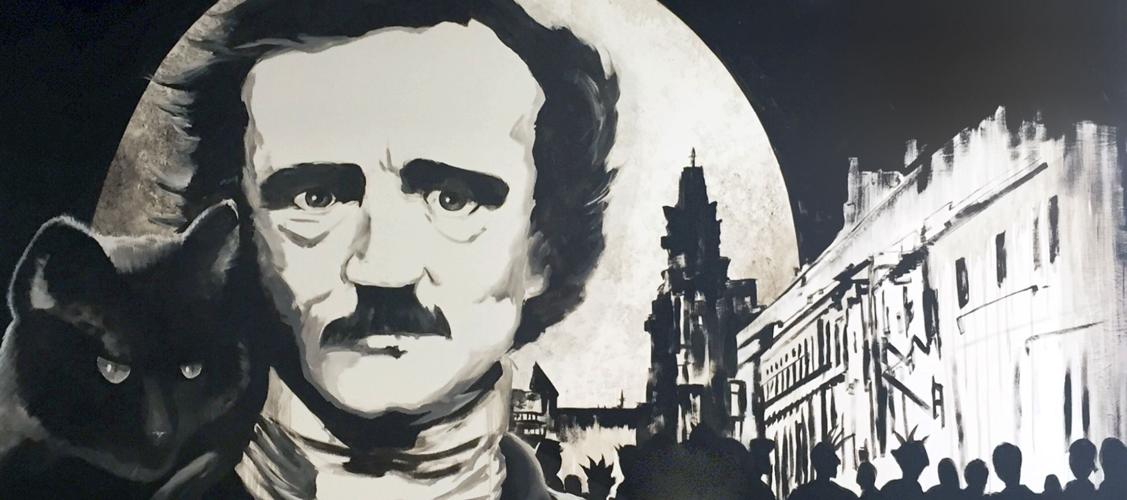Mark Doty found Rincon High School, with more 2,000 students in the late 1960s, filled with anonymity.
Except in the basement.
The below-ground floor of the red-brick building nicknamed “the factory” because of its smokestack, was filled with the creativity of the drama department and in Jean Christison’s English and creative writing classes.
There Doty found solace, a love of poetry and a good friend, Brenda Hillman.
Doty and Hillman, acclaimed poets who live on opposite coasts, return to Tucson in October for separate readings in the University of Arizona Poetry Center series featuring poets with Southern Arizona roots.
Doty reads at 7 p.m. Thursday, Oct. 1, and Hillman reads Oct. 22.
In addition, poet, essayist and former UA professor Boyer Rickel will host a community discussion on Doty’s work at 6 p.m. Tuesday, Sept. 29. Arizona State Poet Laureate Alberto Álvaro Ríos rounds out the series, speaking Oct. 5.
Hillman and Doty became friends in 1969 or 1970 in a creative writing class taught by Christison, UA Poetry Center press materials say, quoting Doty’s 2009 blog.
“Brenda was a year ahead of me. I was intrigued by how smart she was — she read Russian novels … I wrote a poem in our class that Brenda loved. I gave her the only copy of it, on purpose; she folded the poem into her wallet and carried it there for many, many years, long after we were out of touch and living on opposite coasts.”
Christison, who became the head of Rincon’s English department, brought visiting poets to class who “seemed to breathe different air” and inspired Doty, he said in an interview last week. Christison died in 1993, according to Star archives.
Christison had high standards and wanted to see talents realized, said Hillman. The teacher pushed and encouraged. Louise Brown and Laura Hollander, “also great teachers of English,” also were important and influential to Hillman, she said.
Doty continued to find and form his community when writer, poet and UA English prof Richard Shelton, showed him the UA Poetry Center. Doty said he was invited into a community he enjoyed, where life was centered around the art. Doty hung around the center and poets cottage, watching poets like Allen Ginsberg come and go.
Doty didn’t graduate from Rincon, he just walked away after three years, he said. He enrolled in college and when someone noticed he didn’t have his high school diploma he had to take an extra English class. Lack of a diploma didn’t stop him from earning a bachelor’s degree and an MFA.
Noted for his meditative, albeit accessible, poetry, Doty explores family relationships, grief, gay identity and the AIDS epidemic.
The significant influence of his partner Wally Roberts, who tested positive for HIV in 1989 and died in 1994, leaps from his pages. Doty has written three memoirs, including the need-a-hanky “Dog Years,” about the bonds between humans and their canine companions.
He dislikes being set apart or labeled the “gay poet.” He says his work goes beyond a narrow subcategory.
Readers often tell Doty “that’s exactly how I felt,” after reading his work. Which is exactly what he wants — sharing experiences, feelings through carefully crafted language.
One of the “counterculture kids” at Rincon, Hillman said her connection with the desert landscape and seeing “the struggle and beauty of the natural world” ignited here in Tucson.
The Sonoran Desert is clear in some of her poems, such as as “Saguaro”: “the stately saguaro / goes on being entered / by wrens, diseases, and sunlight…it gives the impression / of great effort / in every direction, / like the mother.”
She’s dubbed an “eco-poet.” A tetralogy on the four elements — earth, air, water and fire — is among her ecological body of work.
Also an experimental poet, Hillman said last week from her California home that she likes the physicality of language and will adjust the way a poem looks on a page — like having words hanging in the margin or shaping a poem into a wedge.
Hillman’s poems also are infused with her activism for social and environmental justice. She protested war most of last decade and was active in the Occupy movement, all of which percolates through her poetry.
Next month’s homecoming will be bittersweet for Hillman. It will be the first time back since her father died in June and her mother moved to the East Coast. The Hillman Odeum, the Poetry Center’s outdoor amphitheater space, is named for her parents, Helen and Jimmye Hillman.
For a “kid who struggled,” Doty said reading at the Poetry Center will be an affirmation and an honor.
The readings at the UA Poetry Center should be a homecoming for two acclaimed poets who stepped out of the basement of Rincon High School.
















